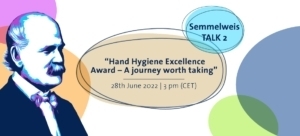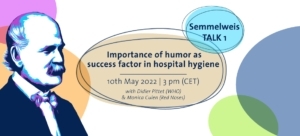To stimulate the development of innovative antibiotics in the battle against drug-resistant bacteria, the Pew Charitable Trusts announced that it will create a digital platform (SPARK = Shared Platform for Antibiotic Research and Knowledge). This platform allows researchers to share data, ideas and insights. An interview with Kathy Talkington, director of Pew’s antibiotic-resistance project.
I am wondering to read that the number of new antibiotics in development has stagnated. One rather gets the impression that researchers permanently communicate about new findings in this regard (Teixobactin et al.). But obviously it is the opposite: Why this stagnation?
Nearly all of the antibiotics currently available are based on discoveries made over 30 years ago, and the pipeline of products in development to treat or prevent bacterial infections is not sufficient to meet today’s urgent and growing patient needs. There are many reasons for this decades-long stagnation in the antibiotic pipeline, and chief among them are fundamental gaps in basic scientific knowledge. The critical question of how to get molecules into Gram-negative bacteria and keep them there to kill the pathogen has perplexed researchers for decades. Answering these kinds of scientific questions is essential to reinvigorating discovery and development efforts, and protecting future generations from a post-antibiotic era, and has been a major focus of Pew’s work to spur much-needed antibiotic innovation.
Is the SPARK platform the first of this kind? And how it is differing from other platforms?
There is currently no publicly available mechanism for sharing information and expertise across the antibiotic discovery research community. SPARK will be the first publicly-available information sharing platform of its kind and addresses a gap that no other resource has filled. Part of what make SPARK unique is that it is tailored for the types of chemical and biological analysis required to understand what types of molecules get into and stay inside of Gram-negative bacteria, and also that it will incorporate data from all sectors.There are a handful of other initiatives to share information more generally to advance antibiotic research, and Pew is working to ensure that our efforts are complementary. Similar data-sharing tools have successfully catalyzed drug discovery in other research areas, such as cancer, neglected tropical diseases, and tuberculosis. Pew hopes that SPARK will do the same for antibiotic-resistant bacteria.
SPARK provides a virtual laboratory for the scientists. As a layperson – how one can envision this laboratory?
Through SPARK’s user-friendly, cloud-based interface, experts from around the world, and across disciplines (e.g., biologists, chemists, computational scientists) and sectors (e.g., academia, industry, government and non-profits), can work together to uncover new observations, generate and share new hypotheses on how molecules enter and stay inside of Gram-negative bacteria, and identify the tools and additional information needed to advance discovery.
What would you recommend to scientists who are interested using the platform?
Scientists as well as other individuals and organizations interested in SPARK should e-mail us at innovation@pewtrusts.org and ask to be added to Pew’s antibiotic innovation listserv. We share regular updates about Pew’s antibiotic innovation work, including information about SPARK. This may include opportunities to help us beta test SPARK, as we work to optimize the user experience and make the platform’s data as accessible and useful as possible.




